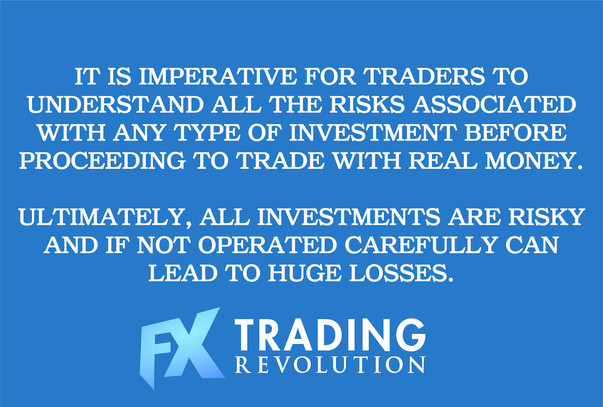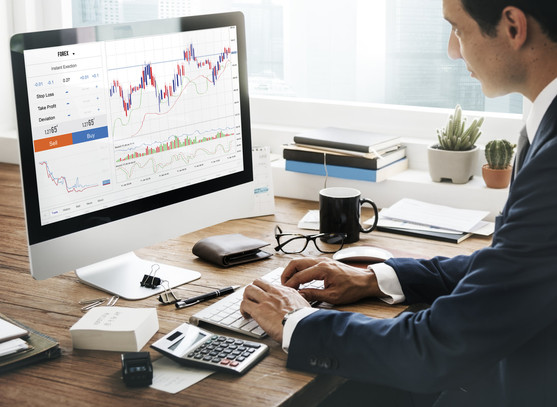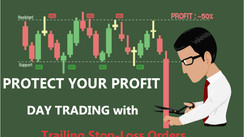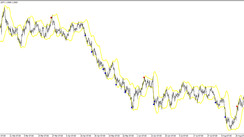Spot trading, CFD trading, Spread betting, Forwards and Futures, Options and Binary Options. There are different ways in which we can invest in or trade the markets - each of them having specific advantages and disadvantages.
While essentially they all allow us to express our bullish or bearish views on a particular instrument or currency pair, there are some important differences between them.
In this article, we’ll briefly discuss the most popular ways to trade the Forex market and the differences between each of them.
Spot Trading
A spot transaction is the type of currency trading or exchanging that we most commonly think of when we are talking about trading.
A spot transaction includes buying or selling of actual assets and even physical assets (or currency pairs). Furthermore, a spot transaction, unlike futures or forwards, takes place at the current market price – known as the spot price hence the name spot trading.
Spot trading takes up a large part of the Forex market and it accounts for around 30 – 40 percent of the daily Forex transactions.
Nevertheless, retail Forex traders usually don’t trade in the spot Forex market, but instead, they trade CFDs of the real spot Forex market – which we discuss in the next section.
CFD Trading
When we refer to online Forex trading, we most often refer to this type of speculative investing. CFDs are the most common type of retail trading and most retail Forex brokers are CFD brokers that also offer other instruments for trading alongside all the currency pairs.
It’s important for retail traders to know the difference between CFD trading and spot trading. The primary difference is that with a CFD the trader never actually owns any asset or currency pair that he buys on the broker’s platform – and this includes stocks, commodities and any other instrument you can find on a CFD broker platform.
CFD stands for Contracts For Difference and as the name speaks for itself, CFDs only allow you to speculate on the changes in the price of an underlying asset. So when you buy CFD shares of a company, for example, you are not entitled to receive a share of the dividend earnings as is the case when you buy actual stocks.
The advantages of CFDs are that transactions are much cheaper, minimum contract sizes are smaller and you have the ability to speculate in both rising and falling markets without any additional costs.
Spread Betting
Spread betting works almost exactly the same like CFD trading – the difference being in that the trader chooses an amount of money he wants to bet on each pip won or lost rather than opening a position in lots.
Essentially, the difference is in the calculation of profits and losses, but the net result is identical because pips for every currency pair have value in CFD trading too – it’s only calculated in a different way.

Furthermore, tax-wise, the most important difference between CFD trading and spread betting is that spread betting is free from taxes in the UK hence it’s more attractive for UK traders. As a result, most spread betting brokers are based in the UK.
Forwards and Futures
Forwards and futures are similar in nature in that both are contracts that allow two parties to exchange currencies or assets at a future date for a pre-agreed price. There are some differences, however, mainly regarding the way how they are traded.
Futures
Futures are standardized and highly regulated financial products which are traded on exchanges in standardized contract sizes. This makes them a very liquid investment and they can be easily sold or bought on the exchange as per investors’ needs.
Furthermore, due to the standardized nature, futures contracts are commonly traded with leverage.
Forwards
Forwards, on the other hand, are contracts to exchange currencies but they are not traded on exchanges or in increments of a standard contract size.
Instead, forwards are privately negotiated and agreed by the two parties that want to exchange currencies based on their unique needs.
“Forwards” contracts cannot be traded after the agreement because there is no exchange for forwards contracts.
Options
Options are financial derivatives that give an investor the right but not the obligation (unlike futures or forwards) to buy or sell an asset or currency pair at a future point in time.
Nevertheless, options are very complex financial products that can be highly risky speculative investments if not understood well by the trader.
Options are most often used to hedge against the risk of losing positions in the market. Options can be bought for virtually any asset that trades on the financial markets.
Binary Options
“Binary options” are very different products from “options” although the terms look alike.
The term “binary options” is primarily related to the fact that each trade in a binary option has a binary (two-way) outcome – the trade can be a profit or a loss. It’s important to note that binary options traders don’t buy the right to buy or sell an asset like options traders do.
So, how do binary options work?
Essentially, it’s a way of financial betting – like sports betting. Traders can bet on whether the price of an asset or currency pair will be higher or lower than the current price after a certain period of time (expiration). Once the option expires the trader either wins or loses depending on the bet he placed.
With binary options, the trader chooses an amount of money he is willing to risk on a position for which he receives a percentage payout from the broker if he is right. If he is wrong the trader loses the amount he placed on the trade.
At the end, as is recommended with all types of investments, it is imperative for traders to learn all the risks that are associated with any type of investment option before proceeding to trade with real money. In the end, all investments are risky and - if not operated carefully - can lead to huge losses.





